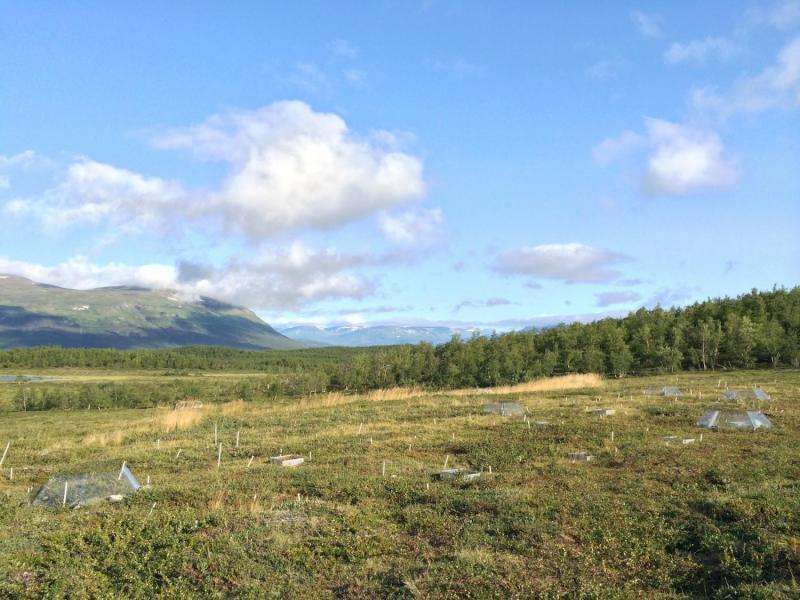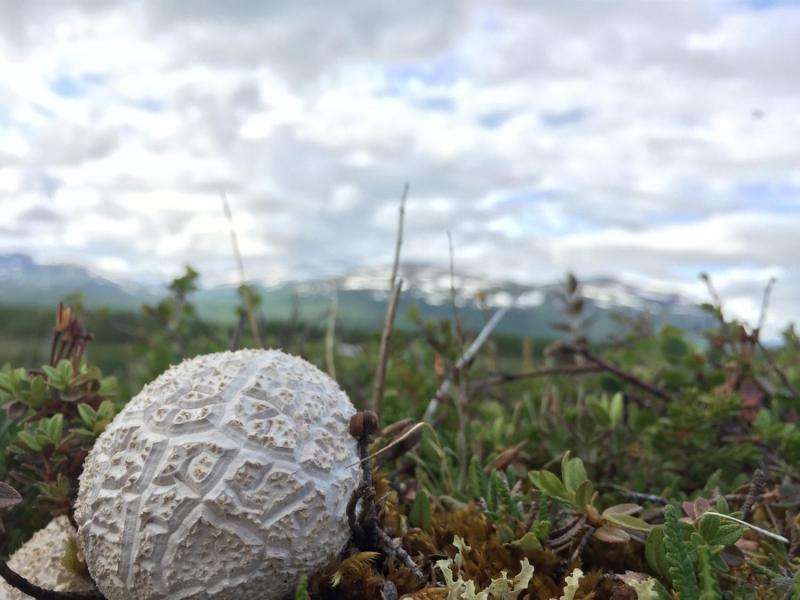Increased vegetation in the Arctic region may counteract global warming

Climate change creates more shrub vegetation in barren, arctic ecosystems. A study at Lund University in Sweden shows that organisms, such as bacteria and fungi, are triggered to break down particularly nutritious dead parts of shrubbery. Meanwhile, the total amount of decomposition is reducing. This could have an inhibiting effect on global warming.
A large amount of the Earth's carbon and nitrogen is stored in arctic ecosystems where the ground is permanently frozen, known as permafrost. Climate change causes such soil to heat up. Johannes Rousk at Lund University, together with colleagues Kathrin Rousk och Anders Michelsen from the University of Copenhagen and the Center for Permafrost (CENPERM), have conducted field studies outside Abisko in the very north of Sweden, studying what happens to the decomposition of organic material as the climate gets warmer.
"As the Arctic region becomes warmer, more shrubs start to grow, rather than moss which is difficult to break down. The shrubs have leaves and roots that are easy to break down and secrete sugar. What we have shown is that decomposition organisms, such as bacteria and fungi, are triggered to look for nutrient-rich organic materials that contain more nitrogen, while decomposition as a whole is reduced," says Johannes Rousk.
When the nutrient-rich material is decomposed, the nutrient-poor part of the organic material is enriched, probably causing the amount of carbon to increase. Current climate models do not consider the connection between increased shrub vegetation as a result of ongoing climate change, and soil becoming less nutritious.

"It will be exciting to see how this will affect the soil carbon turnover in the long term. Perhaps our results will help complement future climate models," says Johannes Rousk.
Today no one knows what less nutritious soil in the Arctic ecosystem and an overall decreased decomposition of organic material will lead to. However, Johannes Rousk dares to venture a guess:
"I suspect it will have an inhibiting effect on global warming," he says.
The article is published in the scientific journal Global Change Biology.
More information: Kathrin Rousk et al. Microbial control of soil organic matter mineralisation responses to labile carbon in subarctic climate change treatments, Global Change Biology (2016). DOI: 10.1111/gcb.13296
Journal information: Global Change Biology
Provided by Lund University



















